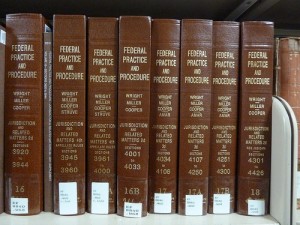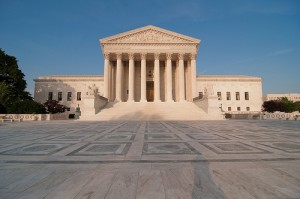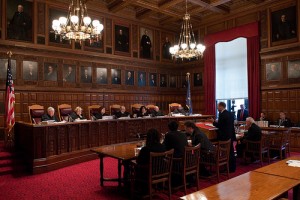Occasionally an attorney will propose that the parties stipulate to the meaning of a relevant statute. Such stipulations have no legal force and will be disregarded by the court. Numerous cases so hold across the United States:
- “Parties to a dispute cannot stipulate to the law and assume that the court will follow blindly an incorrect interpretation of the law, especially in an unsettled and everchanging area.” Carlile v. South Routt School Dist. RE-3J, 739 F.2d 1496, 1500 (10th Cir. 1984)
- “Parties may stipulate to facts but they may not stipulate to the law. Such stipulations as to the law will be disregarded.” Ahlswede v. Schoneveld, 488 P.2d 908, 910 (Nev. 1971), followed in Southern Pacific Transp. Co. v. United States, 462 F. Supp. 1227, 1239 (E.D. Cal. 1978)
- “As for the proper measure of damages and the parties’ stipulation thereto, we note the circuit court’s accurate statement from the bench that parties cannot stipulate to the law or to legal conclusions.” Henry v. Mitchell, 428 S.W.3d 454 (Ark. 2013)
There is an important distinction between stipulations as to the interpretation of the law and agreements as to the choice of law. Contracting parties can agree to the choice of law, especially before any dispute has arisen, absent the presence of facts that justify breaking the agreement such as duress, undue influence, illegality, or the like.
Don’t assume that the court has these rules memorized and instantly accessible. On the other hand, don’t take advantage of the ignorance of your opponent and the workload of the trial court. It often happens that the trial court accepts a stipulation as to interpretation of the law only to be reversed on appeal. At that point, the party harmed by the stipulation may have new counsel or time to research the issue. The appellate court is much more likely to have a law clerk to research such issues. Attempts to argue that the stipulation should stand are likely to produce a loss of respect. As a result, any benefit of the stipulation is typically more than negated by the cost of a reversal and retrial.




